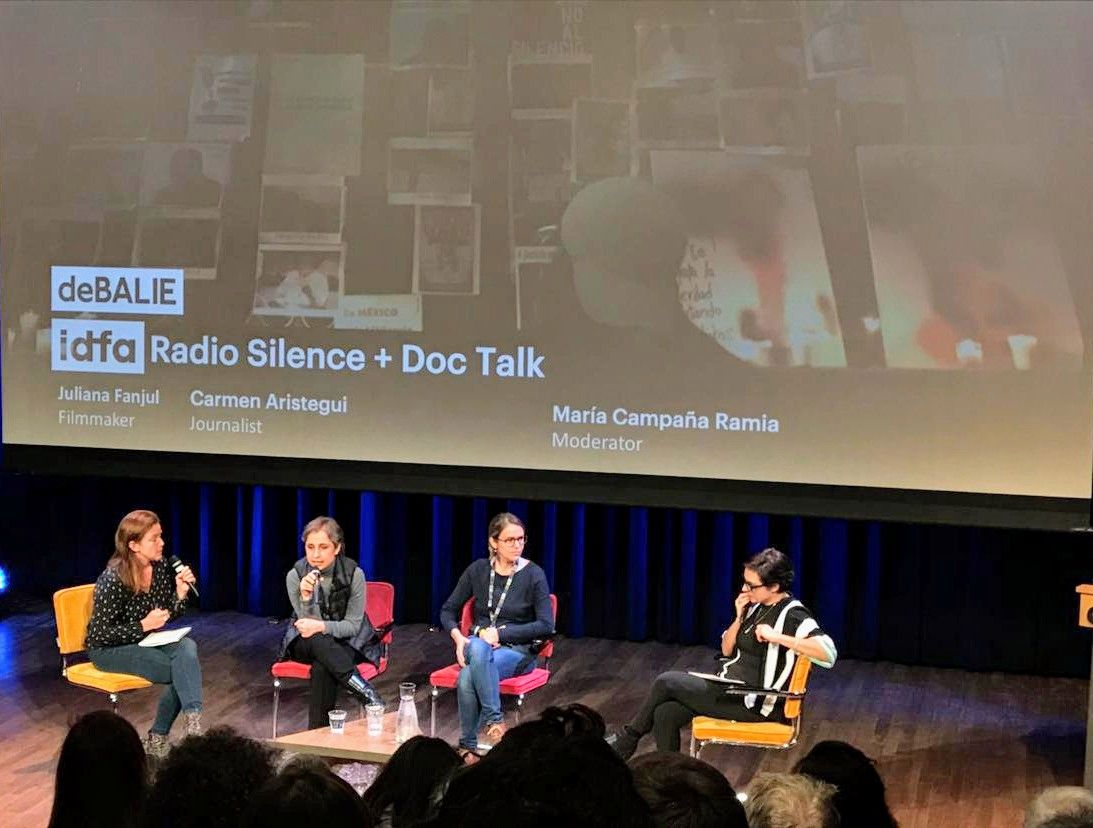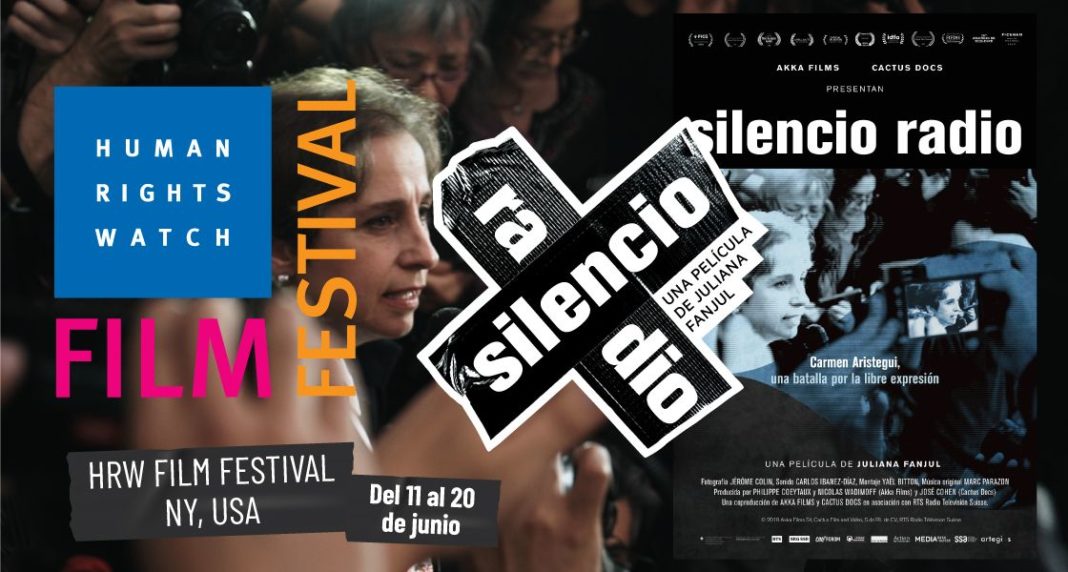The film is part of the Human Rights Watch Film Festival that is presented virtually from June 11 to 20.
For the filmmaker Julianna Fanjul, following the news of her country Mexico from abroad was very important so as not to feel so disconnected from her homeland. She widely trusted the news that journalist Carmen Aristegui gave on a national radio program.
However, in March 2015, after Aristegui revealed an investigation that involved then-President of the Mexican Republic Enrique Peña Nieto in a corruption and conflict of interest scandal with the so-called White House, Aristegui's program stopped coming out. air.
"And well, like many, I was a bit orphaned by that voice," Fanjul said in an interview with La Opinion. "Very worried and uneasy about what was happening in Mexico and from Switzerland where I was living I decided to use the tools of cinema."
Shortly after, Fanjul convinced some Swiss producers to look for Aristegui and thus be able to create a documentary of what happened. This was the beginning of the documentary ”Silence Radio ” , or Radio Silence in English, which began to be projected last year internationally.
Fanjul wanted to get to the bottom of the problem since the dismissal of Aristegui from MVS Radio not only involved losing his job, but the possibility that his life would be in danger as it had already happened with hundreds of Mexican journalists.
"Not only the media in general, but also individual reporters themselves censor themselves because the risks they take are enormous," Fanjul said. “So writing something down, revealing something can mean you get killed. The message has been very clear, Mexico is one of the most dangerous countries to do journalism. "

However, for Fanjul and many other Mexicans, Aristegui has become the reliable alternative to what the Mexican government says. This allows those born in that country to know the reality of their nation through these independent and dissident voices.
"Fear must not overcome us. We must not leave room for silence and allow this situation to terrorize journalists, "said Aristegui in the documentary.
After following the life and work of Aristegui for four years, at the end of 2019, the documentary “Radio Silence” was screened in Switzerland and later in Amsterdam, where it was a success. At the beginning of 2020 it was presented in Mexico where it had a good reception, but the coronavirus pandemic stopped subsequent presentations.
Presentation in the United States
Despite the fact that the presentations with an audience have stopped, the virtual events to publicize films continue and among them is the Human Rights Watch Film Festival that will begin this weekend where people will be able to see the documentary.
The festival is presented for the first time in its digital edition from today, Thursday 11 and until Saturday, June 20.
Human Rights Watch Film Festival hopes to show powerful and uplifting stories of those who demand justice, equality and security for themselves, their communities and future generations.
“Radio Silence is a wake up call; a film that deserves as much exposure as possible at a time when freedom of expression, facts and good journalism are under constant assault, ”John Biaggi, director of the Human Rights Watch Film Festival, said in a statement.
Biaggi explained that the participants will be able to witness in 11 films a vision of brave people and strong communities.
“(The films) overcome adversity in many remarkable and moving ways; They also show us all how fighting can create positive and powerful change for humanity. ”
The documentary will be presented this Saturday at 11:30 a.m. pacific time. To buy tickets and find out more about the documentary visit:
https://www.hrwfilmfestivalstream.org/film/radio-silence/






